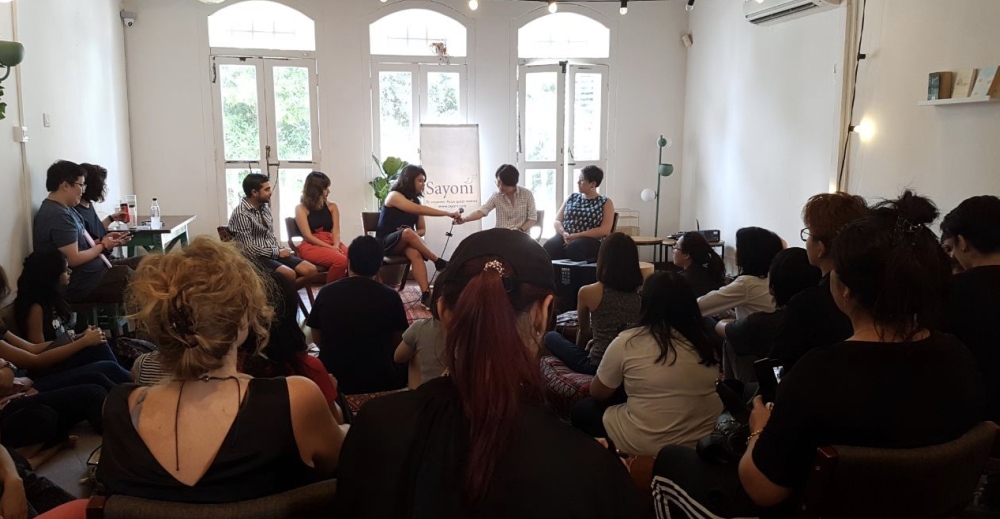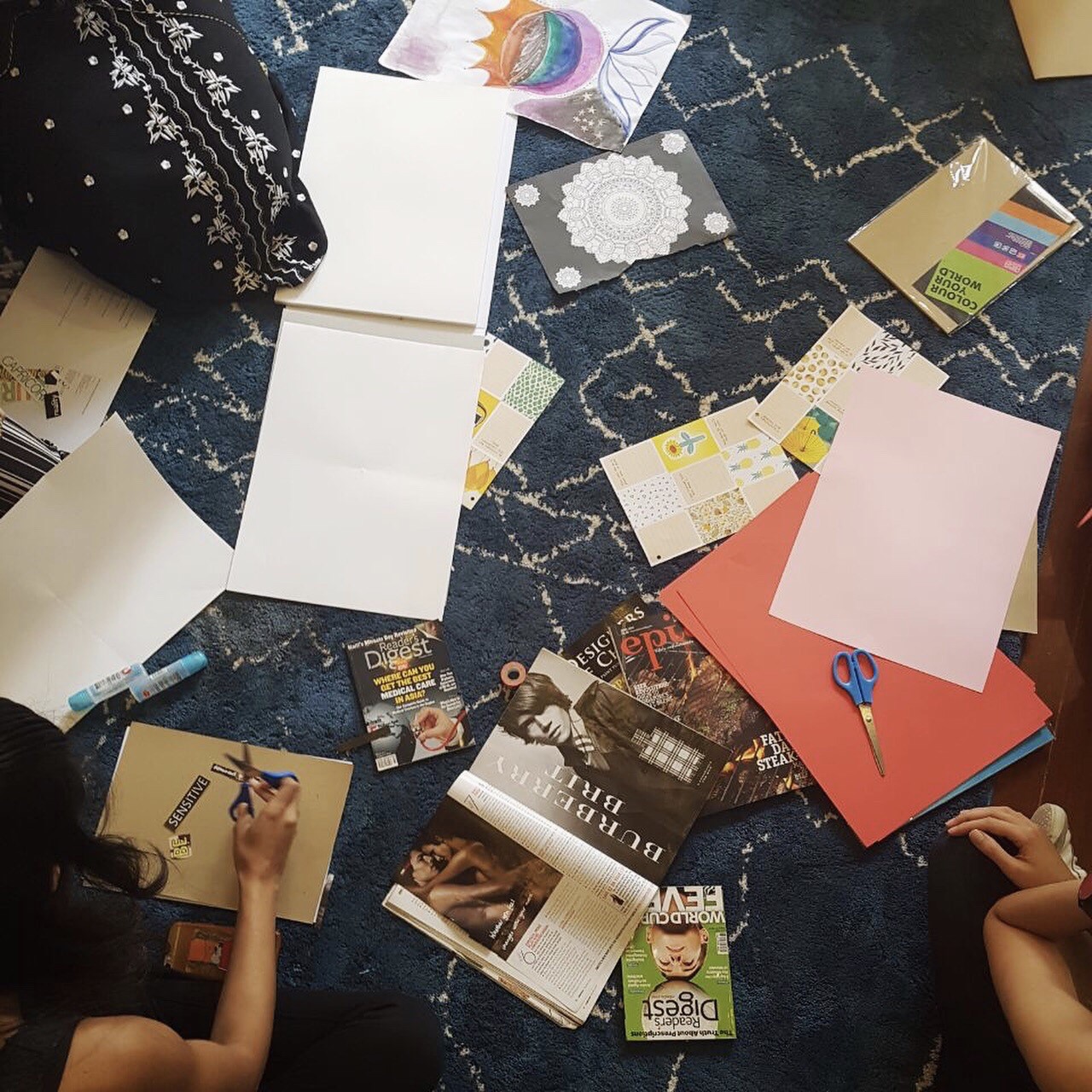
On 3rd March 2019, Sayoni held a one-day symposium, or “feel tank”, on emotional well-being and self-care for LBTQ persons at The Moon, in collaboration with ASEAN SOGIE Caucus, Brave Spaces, Inter-Uni LGBT Network and Queer Zinefest SG. The symposium comprised a panel discussion and two workshops.
The panel discussion, titled “Why Self-care isn’t Selfish - A Dialogue Session", aimed to uncover how our emotional well-being might be affected by the current social climate, as well as how LBTQ persons can support themselves and each other in periods of stress or vulnerability. The panelists involved were Rosie, a counsellor, Shan, a social worker, Rachel, Executive Director of Inter-Uni LGBT Network, and Alina, a volunteer from Sayoni.
1. The Importance of Self-Care
All of the panelists agreed that self-care is crucial to our survival. Alina explained that due to the societal pressures faced by LBTQ persons, self-care is imperative and rooted in who we are, as we have to learn to cope and take care of ourselves.
Notably, panelists shared that we have to be aware that self-care is something that constantly evolves - while doing something on a particular day can make you feel better, it may be possible that doing the same thing may not have the same positive effects on you on another day. As Rosie said, “Self-care is a journey and process that continuously changes.”
As Shan noted, having dialogues about self-care is part of the movement to highlight its importance. He emphasised the importance of checking in with yourself, knowing what you need so you are able to help yourself and in turn, help others. “It’s like those airline safety videos, you have to be able to put on an oxygen mask for yourself first, to ensure that you can breathe, before putting that on for others in need”, Rosie added.
Attention was called to the fact that self-care doesn’t have to be “something huge”. It can simply be allowing yourself 5 minutes to breathe or having meals at regular intervals, as suggested by Rachel. Additionally, Alina brought up the importance of having a support network, especially for LBTQ people, since there may be limited support from families and it may not be adequate enough to rely on support from their intimate partners.
2. Creating a Self-Care Plan
Through the first workshop, Self-care Jamming, participants were given a platform to explore the concept of self-care. They discussed what self-care meant to them in groups of five, and made suggestions for self-care, such as writing as a form of catharsis and self-expression, taking a break from phones and setting boundaries. Following this, participants were given time to fill up jam jars with messages to themselves or reminders for self-care, and creatively designed the jars with materials provided. They were then encouraged to share about the jars they created.
3. Zine-Making as a Form of Self-Care
The second workshop, Self-care through Zine-making, was led by Queer Zinefest SG. They started off with an introduction to zine-making. The first exercise was a Mandala Exercise, where participants could express themselves, working within a mandala shape to explore their emotional landscape. The second exercise was a Map of the World, where participants made an image of themselves in the center of a piece of paper, and then used various materials to represent their relationship with the people and resources around them.

One participant who attended the Feel Tank commented that the panel was a good way to think and learn about the overall concept of self care, and that “it was humbling to hear about different opinions on self-care”. Furthermore, the workshops provided a space where she felt safe and included, and where she could express herself using a medium beyond words, through arts and crafts. She added, “I took away a lot knowing that other people have had similar feelings of guilt and self-indulgence associated with caring for one’s self. I found it useful to reflect on these thoughts and my own experiences, to think about how I can face them head on, and ways in which I can practise and think about the importance of self-care. I now feel that yes, I should make this something regular, and care for myself as much as I care for others (or even more).”
